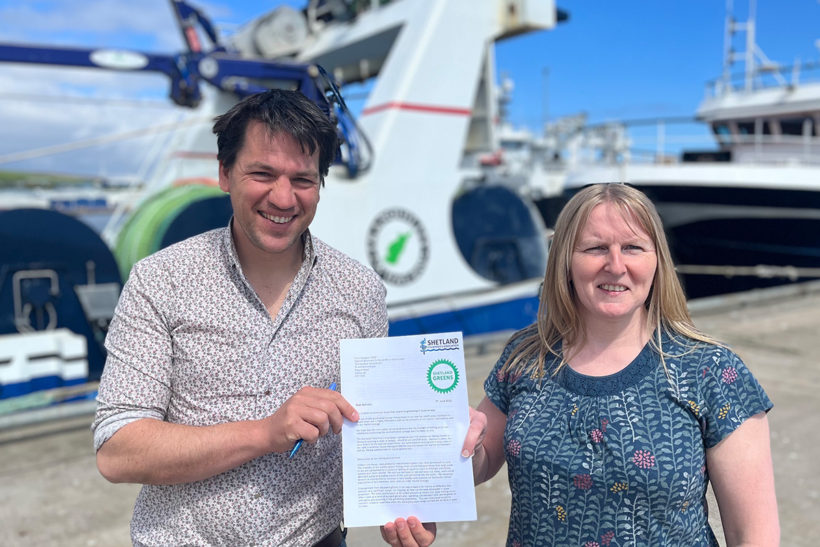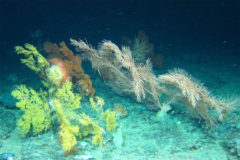Fishermen in Shetland have joined forces with the local Green party to demand a ban on gill-netting in Scottish waters.
This has been a serious issue for over a decade, and the unlikely alliance between fishermen and greens is symbolic of the deep frustration in Shetland at the lack of action by the Scottish government to protect local waters, wildlife and the islands’ economy, says the Shetland Fishermen’s Association (SFA).
The SFA and the Shetland Greens have written in strong terms to Mairi Gougeon, Scottish cabinet secretary for rural affairs and islands, urging an end to the practice by foreign vessels, which they say is highly destructive for both the local economy and marine ecology.
Their letter highlights that gill-nets often result in the entanglement of sea mammals and birds; that the huge plastic nets are often discarded in the sea after use; and that the visiting vessels squeeze out Shetland boats, and have on occasion adopted dangerous tactics, such as when the Spanish-owned, German- registered gill-netter Pesorsa Dos tried to run a rope through the propeller of local whitefish trawler Alison Kay in 2020.
It also flags up the issue of unregulated landings. “We are concerned that many foreign fishing boats bypass the well- regulated local fishmarkets. Foreign boats frequently load their catch straight from the harbourside into the back of refrigerated lorries heading straight to markets on the Continent – bringing little benefit to the local economy. These ‘lorry landings’ invariably go uninspected by Marine Scotland, raising suspicions of illegal fishing. Marine Scotland must better fulfil its duty to check landings against catch declarations and quota allocations, to ensure that these vessels are fishing at sustainable levels.”
SFA executive officer Sheila Keith said: “The difficulties in the intensive gill-netting in the waters around Shetland stem from the fact that it is a mixed fishery, giving these vessels no way of being selective in the species they catch.
“Criticism over the high bycatch rates and mortality of species such as seals, crabs and seabirds, all evidenced in the catalogue of photographs captured by our members, leads us to question why Marine Scotland is failing to act.
“It is time to regulate these destructive fishing practices, and failures around the disposal of waste and discarding of fishing gear, before the damage becomes irreversible.”
Alex Armitage of the Shetland Greens said: “As a Shetland Green councillor, I was elected on a manifesto commitment to sustain our fisheries and our marine ecosystems.
“We cannot allow intensive gill-netting to continue in Scottish waters; not only is it decimating our marine environment, but gill-net crews are trashing our seas with their used nets and domestic rubbish.
“Greens support responsible, sustainable fishing, and I’m happy to be working with the Shetland Fishermen’s Association and all fishers who want to sustain our marine economy and ecology for the future.”
The letter acknowledges that the two organisations are unlikely bedfellows, but points out that this only serves to highlight the widespread support for a ban. “Fishing crews and the Green movement are not always in agreement, but on this subject we concur.
“Any level of co-operation between our two sections of Shetland society should be illustrative to your government of the level of concern in our community, and the wider public will to see action taken.”
This story was taken from the latest issue of Fishing News. For more up-to-date and in-depth reports on the UK and Irish commercial fishing sector, subscribe to Fishing News here or buy the latest single issue for just £3.30 here.






